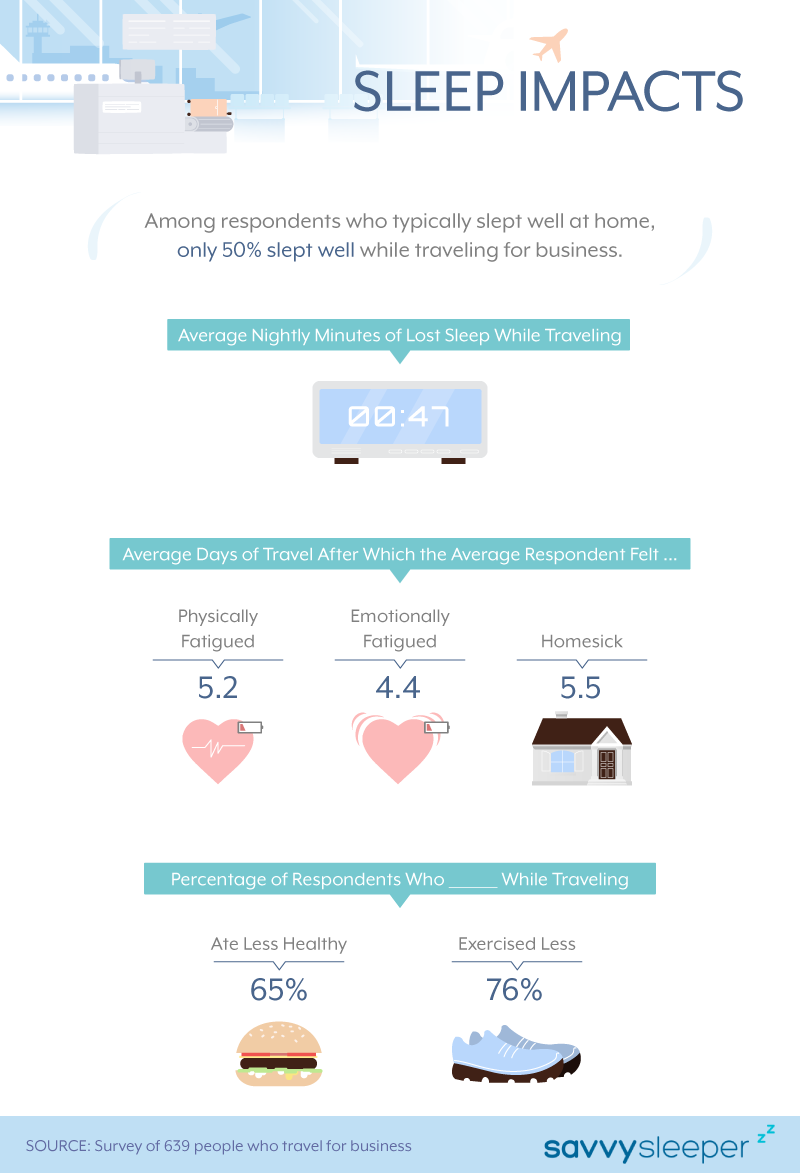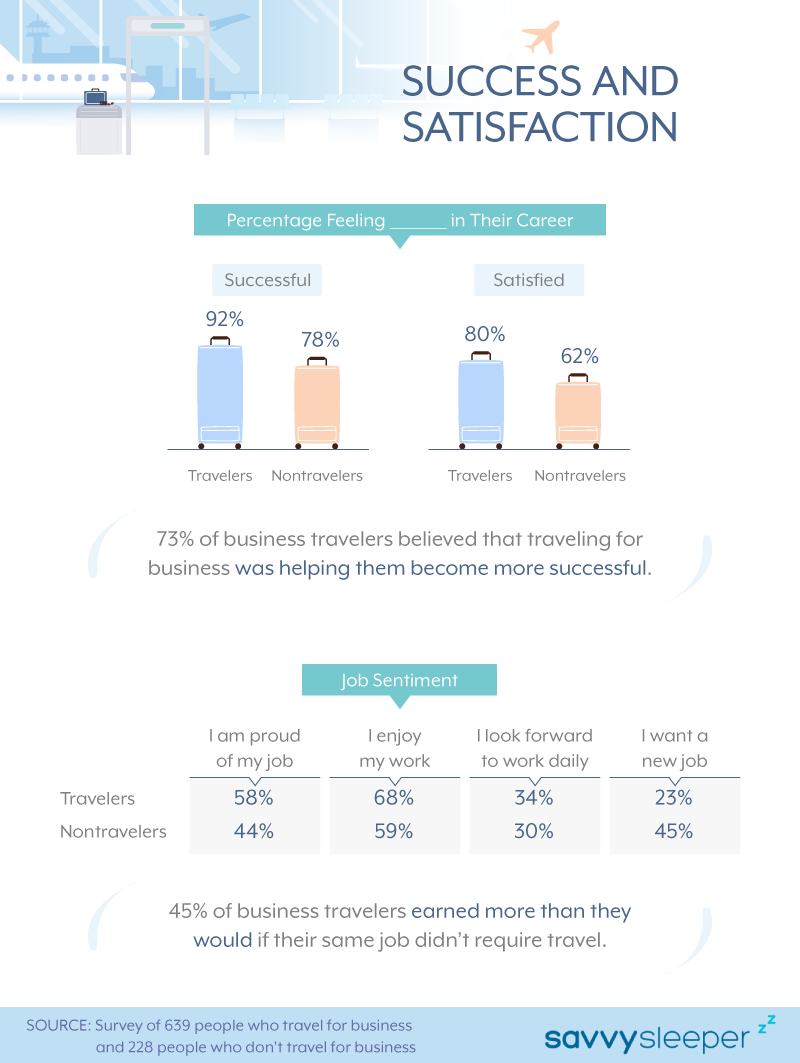It is different for everyone, but on the whole, while we may know how travel is impacting us, we don't want to give it up. Statistics can differ, but more than half business travellers will generally say they are happy about spending time away from the office for work, with the vast proportion happy to continue doing it long into the future.
Surveys across the world have highlighted the poor work-life balance of road warriors. This is particularly true in the United States of America (USA) when annual holiday entitlements are not often reached. A recent survey of American travellers from dedicated sleeping platform SavvySleeper adds some more weight to the discussions.
It is clear that lack of sleep has a significant impact on our daily life, from physical to mental health. While travel is a big influence, it is more the lifestyle effects that translate into well-being problems, after all SavvySleeper research shows that overall more than a third (35%) of US adults are said to not get enough sleep each night.
Its 'On the road again: exploring the lifestyle effects of business travel' research comes from a survey of over 850 Americans who on average spent 22 days per year travelling for business over nine separate business trips, with the average trip spanning 3.8 days.

The big news, while not surprising, was that among those who typically had no trouble sleeping well at home, only 50% could say the same about the quality of their sleep during business-related travel. This discrepancy may be due, in part, to something called the "first night effect," according to SavvySleeper, during which our brains take in their new environments and, therefore, rest less soundly. Experiences like staying in a hotel room or sleeping over at someone's house can trigger this effect.
Its research shows that as a result of those interruptions, travellers lost an average of 47 minutes of sleep per night while on the move. By day four of travel, the average person felt emotionally fatigued (experienced by 62% of respondents), and by day five, they also felt physically fatigued and downright homesick (experienced by 67% and 65% of respondents, respectively). No matter how many days they spent travelling every year, most people felt more or less the same when they returned.
While travel is tiring and jetlag a pain, it is again the lifestyle effects that hit us most. "Shifts in routine can often create a domino effect, and being far from home in a different city is often a gateway to unhealthy habits," says SavvySleeper.
In a traditional hotel you will have a room with no kitchen or limited supplies, so you're not likely to be cooking for yourself. The survey highlights that around two in three business travellers (65%) ended up eating less healthy while they travelled. Another 76% exercised less while travelling for work. The rise in apartment hotels and their increasing popularity with corporates, especially on long-stay projects, highlights a solution to this.
Interestingly though, accepting the well-being effects, business travellers are shown to be universally happier with their work life, according to the SavvySleeper research. Travellers felt more successful (92% versus 78%) and more satisfied (80% versus 62%) in their careers and were three times more likely to say they were "very successful" compared to non-travellers.

It takes a specific character to be successful when you are regularly on the road - you certainly don't face issues like air traffic delays and missed connections when sat at the desk in the office. There is also the need to keep up to date with normal daily work while travelling. The research shows that more than four in five respondents (84%) where expected to maintain their normal workload while out of the office, with almost half (48%) admitting that to be a struggle.
There is also the impact of travel on your home life, which the majority (just!) believe has a negative impact on parenting. This differed by gender, with a higher proportion of mums than dads believing it has a negative impact (42% versus 34%) and even a positive impact (33% to 31%). It seems males respondents where more indecisive with this survey question and most believed it had no effect (35% versus 25%). It was also found that shorter trips had a negative impact, while longer trips of over five days had a positive effect.
You can view the full findings of the research here: On the road again: exploring the lifestyle effects of business travel